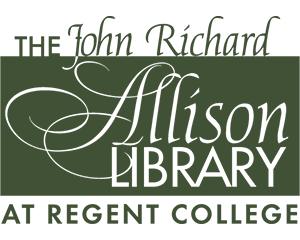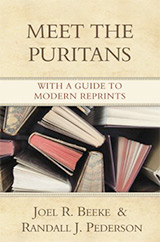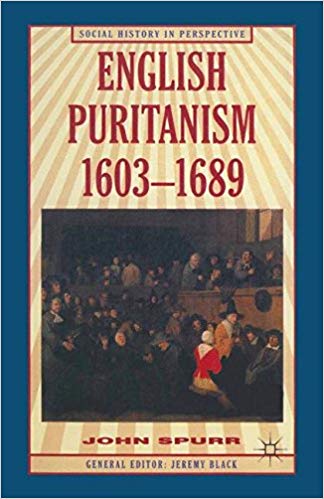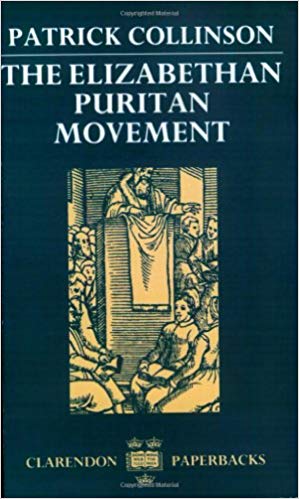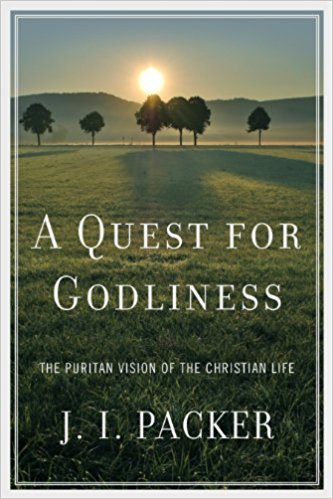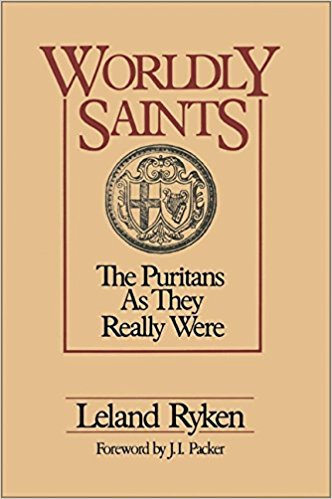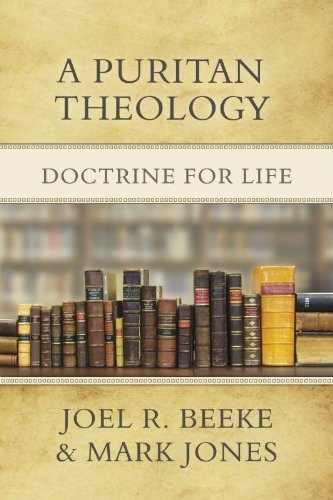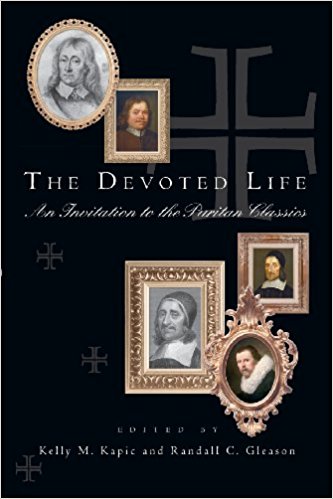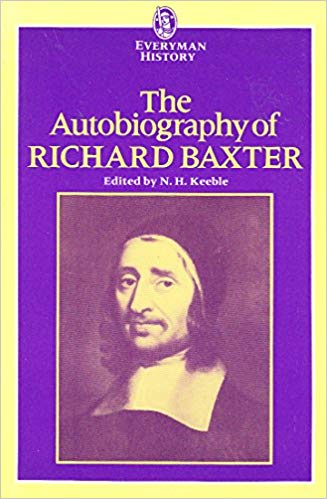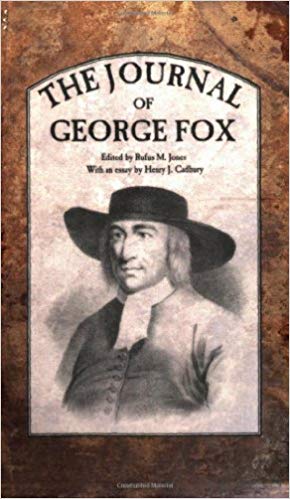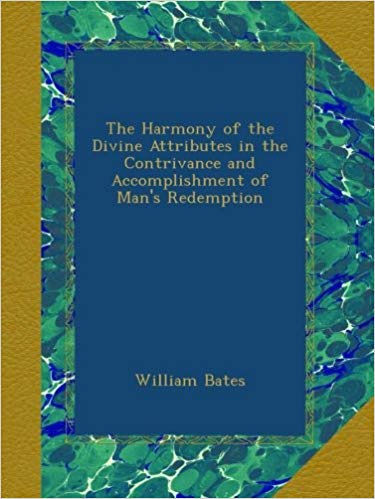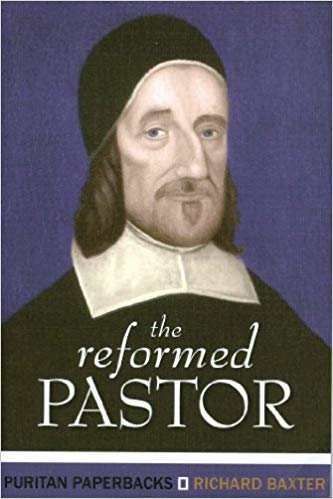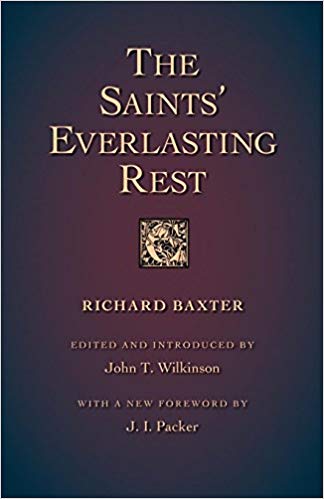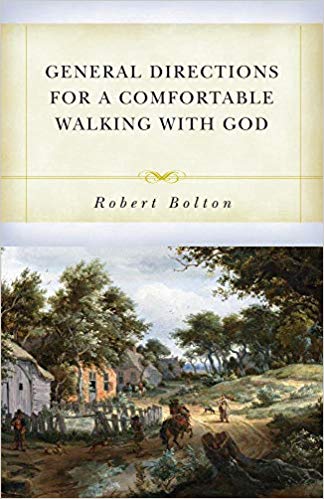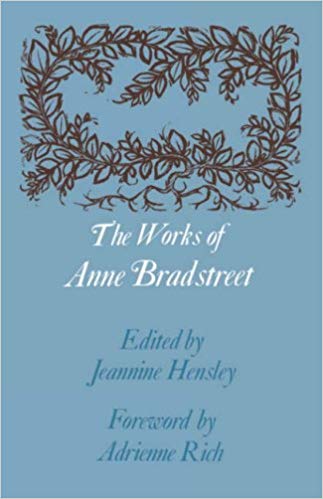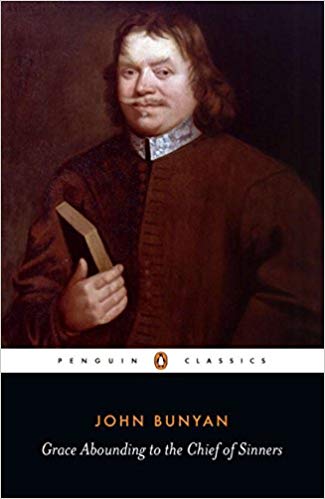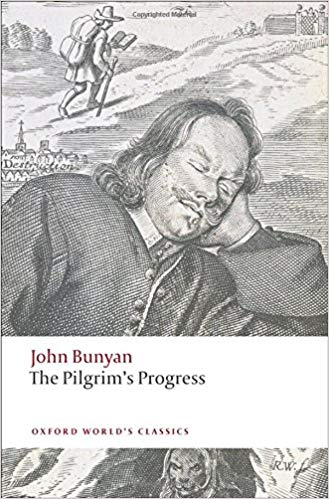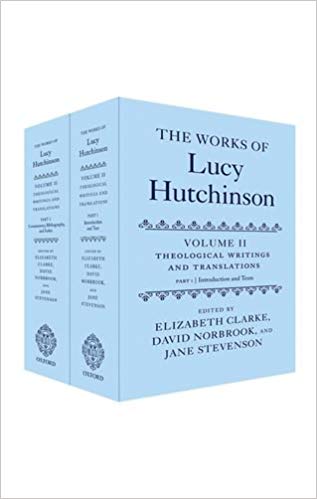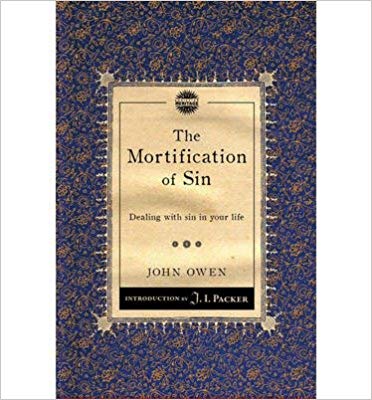Research the Puritans in the Allison Library
 Processing Request
Processing Request
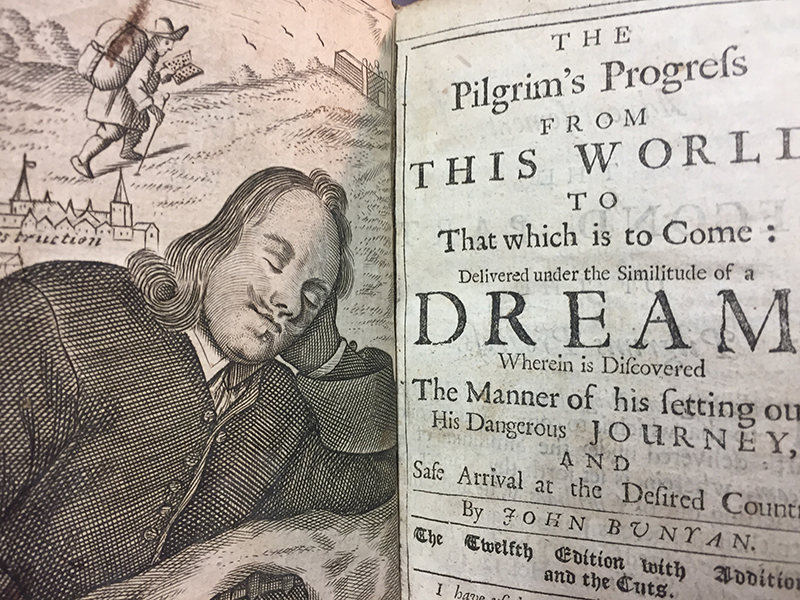
Though the term Puritanism is difficult to define because it is so broad, one may correctly use it to refer to the widespread religious movement that arose in England during the reign of Queen Elizabeth I as a response to perceived problems in the Church of England.
Puritans who held to historic Christian orthodoxy took varying stances on church governance, the relationship between the church and state, and eternal decrees of predestination. However, they all promoted theological reform in the Church of England (claiming to continue on the trajectory of the Protestant Reformation) by emphasizing the primacy of Scripture, the centrality of Christ, the necessity of the Spirit’s work in the lives of believers regarding salvation (including growth in holiness), and the importance of experiencing communion with God on a personal and practical level. Negatively, they all reacted strongly against forms of Catholic sacramentalism that they saw in the Church of England, such as the use of vestments.
The Puritans have been largely caricatured as killjoy elitists who were opposed to all forms of pleasure and over-preoccupied with hell. However, this caricature has been significantly challenged by various scholars who have shown that the Puritans were godly pastors and lay people who brought about theological and spiritual renewal in the church.

Studying Puritanism is like studying any other Christian tradition or movement in that it can be approached from many perspectives, such as history, theology, and spirituality.
One may research from a historical perspective by asking questions about where and when the Puritans lived (including socio-political realities) and what happened in the world during their lifetimes, a theological perspective by asking what a certain Puritan or group of Puritans believed about various Christian doctrines, or a spiritual perspective by asking what kind of spiritual practices the Puritans used and how or why they used them.
Since theology must be understood in context, these perspectives will overlap and inform one another. However, when writing a research paper on the Puritans, one should craft a narrowly defined and falsifiable thesis statement.
The Allison Library has many types of resources that are useful for studying Puritanism, including encyclopedias and dictionaries, monographs (in the main stacks and the rare books collection), and journals. Each of these categories will be addressed in order of the stage at which they may be most useful in the research process.
There are a variety of ways to approach Puritan studies depending on the intended outcome. The best way to start is to consult an encyclopedia or dictionary in order to see the range of possible research topics or areas of interest.
Useful encyclopedias and dictionaries are:
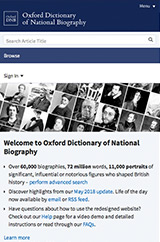
Matthew, H.C.G., and Brian Harrison
Oxford Dictionary of National Biography
This is the most comprehensive source for biographical information on the English Puritans since it is the standard reference work for British historical figures throughout history. It served as the main and authoritative source (when discrepancies between other sources arose) for Beeke’s and Pederson’s Meet the Puritans, and is easily searchable online at oxforddnb.com.
Beeke, Joel R. and Randall J. Pederson.
Meet the Puritans with a Guide to Modern Reprints
Grand Rapids: Reformation Heritage Books, 2006
This encyclopedia is arranged by historical figure and provides basic bibliographical information, as well as brief summaries of the authors’s most important works. Beeke and Pederson created their entries using various encyclopedias and reference works on the Puritans, including older books such as Wood’s Athenae Oxonienses and Brooks’ Lives of the Puritans.
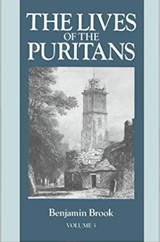
Brook, Benjamin
The Lives of the Puritans. 3 vols.
Pittsburgh: Soli Deo Gloria Publications, 1994
This nineteenth century bibliography on the Puritans is arranged by historical figure and provides biographical information, direct quotes from the figure, and a list of the figure’s works.
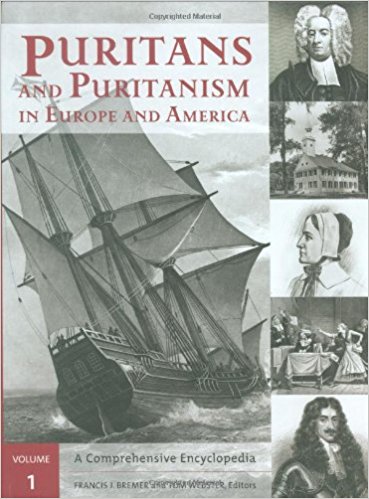
Bremer, Francis J and Tom Webster (eds).
Puritans and Puritanism in Europe and America: A Comprehensive Encyclopedia.
Santa Barbara: ABC-CLIO, 2006
This encyclopedia is divided into two volumes: the first addresses people and the second addresses ideas, events, and issues. Together, these volumes provide a broad treatment of the complex movement of Puritanism. They also include illustrations and a glossary of technical terms.
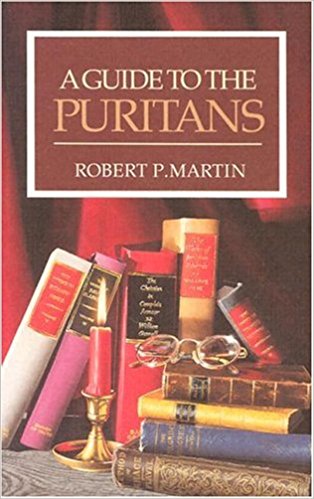
Martin, Robert P.
A Guide to the Puritans.
Edinburgh: Banner of Truth Trust, 1997
This book has a topical index (Puritan books written on certain subjects), Scripture index (Puritan books dealing with particular Bible passages), biographies (secondary source biographies on individual Puritans), reviews (of books written by the Puritans), and sermons (written for funerals, worship services, ordinations, and other special occasions).
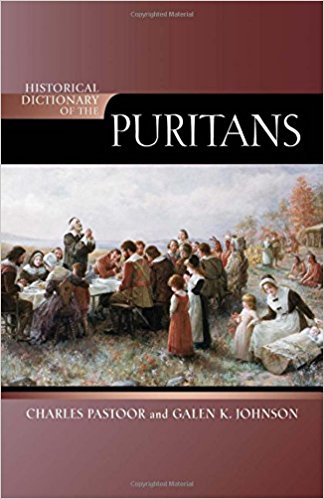
Pastoor, Charles and Galen K. Johnson.
The Historical Dictionary of the Puritans
Lanham: Scarcrow Press, 2007
Pastoor and Johnson composed this book to provide a dictionary that encompassed English and American Puritanism in one volume. In it, they show how various historical figures were interconnected, and thus bold cross-references within each entry. In entries on historical figures, they also list their most famous works.
Three common ways to approach research on the Puritans is by studying their history, spirituality, or theology. Once one has identified a research topic, one should consult major works on the Puritans from the intended research perspective. Monographs in the main stacks are the most useful resources for this stage. Helpful monographs for researching from an overarching perspective (rather than specific Puritans or topics) are:
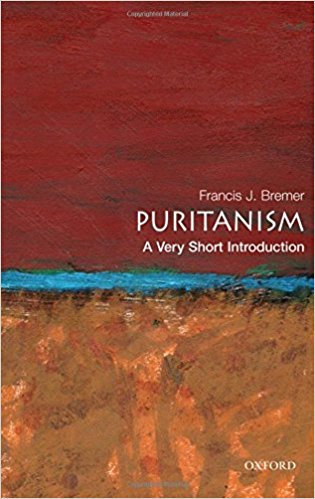
Bremer, Francis J.
Puritanism: A Very Short Introduction
Oxford: Oxford University Press, 2009
This is a brief overview of Puritanism intended to orient the reader to the Puritans as they were. It is a good place to start for the reader who does not have any knowledge of Puritanism.
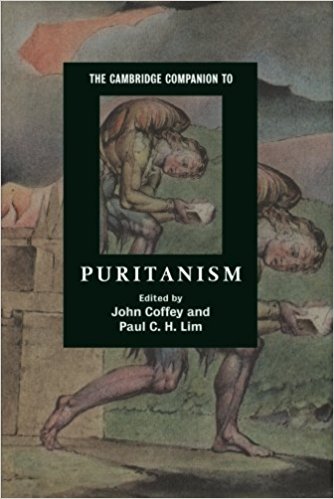
Coffey, John and Paul C. H. Lim.
The Cambridge Companion to Puritanism
Cambridge: Cambridge University Press, 2008
This book contains geographical, chronological, and thematic information. It is a good introduction, but compared to Bremer’s Very Short Introduction, it is more technical and detailed.
Spurr, John.
English Puritanism, 1603-1689
New York: St. Martin's Press, 1998
Spurr introduces the main characteristics of the Puritans, the rise and fall of Puritanism in England, and Puritan experience. The first and last sections span 1603-1689, and the second section focuses on historical development across a timeline.
Collinson, Patrick
The Elizabethan Puritan Movement
London: Clarendon Press, 1967
In his magnum opus, Collinson explains Puritanism as a movement for further reformation in it's political and ecclesial context.
Packer, J. I.
Quest for Godliness: The Puritan Vision of the Christian Life
Wheaton: Crossway Books, 1990.
This well-known overview is scholarly, clear, and practical. When asked if he had to pick a favorite book written by himself, Dr. Packer noted this book. This is a must-read for anyone wanting to understand Puritan spirituality.
Ryken, Leland.
Worldly Saints: The Puritans as They Really Were
Grand Rapids: Academie Books, 1986.
Ryken aims to show what the Puritans were really like (as opposed to common stereotypes) by surveying Puritan ideals regarding topics about the Christian life, such as work, family, worship, and education.
Beeke, Joel R. and Mark Jones
A Puritan Theology: Doctrine for Life
Grand Rapids: Reformation Heritage Books, 2012.
This larger monograph presents Puritan doctrine according to the basic structure of a systematic theology. Looking through the table of contents will orient readers to important Puritan emphases as well as possible topics of research. However, this book may be used most effectively further down the road of research since it is so detailed.
Kapic, Kelly M. and Randall C. Gleason
The Devoted Life: An Invitation to the Puritan Classics
Downers Grove: InterVarsity Press, 2004.
After the well-known introduction, “Who Were the Puritans?” by Kapic and Gleason, this book looks at several famous works by representative authors, supplemented by biographical information.
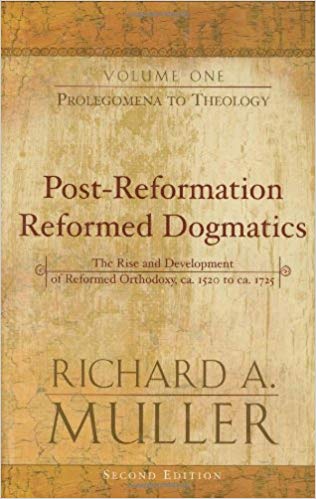
Muller, Richard A.
Post-Reformation Reformed Dogmatics: The Rise and Development of Reformed Orthodoxy, ca. 1520 to ca. 1725
Grand Rapids: Baker Academics, 2003
In response to evaluations of Reformed Orthodoxy (Reformed theologians after the Protestant Reformation proper, which includes many Puritans) divorced from its context, Muller published this massive four volume set on the development of Reformed theology. He arranges his content by categories of systematic theology (prolegomena, Scripture, God’s essence and attributes, and God’s triunity) and follows the development of each doctrine chronologically.
In addition to modern books on Puritan history, there are several several sources that provide a direct window into the world of the Puritans from their own perspective. The following books are widely read primary sources:
Baxter, Richard
The Autobiography of Richard Baxter
London: Dent, 1974.
Baxter’s autobiography (originally titled, Reliquiae Baxterianae) provides valuable information about his own life, but also about important ecclesial events, some of which he witnessed first-hand. There is an antiquarian copy of Reliquiae Baxterianae (1696) in our Rare Book collections. Click here to make an appointment to view this rare edition or view the digitized verision here.
Fox, George
The Journal of George Fox
Richmond: Friends United Press, 1983
George Fox (an English Dissenter and founder of the Quakers) wrote this religious autobiography in 1694, which provides a glimpse into everyday life in seventeenth-century England.
The Puritans were known for their expertise in Christian theology and spirituality. You'll find many sets of works, modern reprints, and new critical editions of these works in our main stacks. Some of the most popular and beloved individual books (apart from sets of works) are:
Bates, William
The Harmony of the Divine Attributes
Philadelphia: Presbyterian Board of Education, 1850.
This book, first published in 1674, was reprinted more than any other book by Bates. John Howe said Bates yearned to study God’s love and mercy, which he deals with extensively in this book. There is an antiquarian edition of this text, published in 1675, in the Rare Books collection. Click here to make an appointment to view the rare edition or view the digitized version here.
Baxter, Richard
The Reformed Pastor
Edinburgh: Banner of Truth Trust, 1974.
Baxter’s famous instructions for the pastorate has been continually reprinted and used as a manual for training in ministry since its first publication in 1656. It includes reflections on his own experiences as well as practical advice for others. This version includes an introduction from J. I. Packer. The library also has a rare first edition of this text; click here to make an appointment to view it.
Baxter, Richard
The Saints' Everlasting Rest
Vancouver: Regent College Publications, 2004.
Baxter wrote his discourse on heaven when suffering from a serious illness. In it, he exposits Hebrews 4:9, shows the excellencies of rest, grapples with questions about assurance of salvation, and instructs readers how to use meditation to stay focused on a hope for heaven. This version has been abridged by John T. Wilkinson and includes a foreword from J. I. Packer. The library has a rare 9th edition of The Saints' Everlasting Rest (1662) in the Rare Books collection; click here to make an appointment to view it. The library also has an edition from 1765; click here to view a digitized version of this text.
Catalogue Record
Bolton, Robert
General Directions for a Comfortable Walking with God
Ligonier: Soli Deo Gloria Publications, 1991.
Bolton's Directions is a well-known Puritan casuistry. This was a type of literature that detailed outlines of holy living in all areas of life including resolutions to moral problems.
Bradstreet, Anne
The Works of Anne Bradstreet
Cambridge: Harvard University Press, 1981.
Anne Bradstreet was the first person, male or female, to publish a book of poetry in America. The first collection was published without her knowledge in 1650 when her brother-in-law took her poems to England, and she would later edit and add to this early collection. All of her poems and letters are included in this copy of her works.
Brooks, Thomas
A Mute Christian Under the Rod
Wilmington: Sovereign Grace Publishers, 1970.
Brooks' Mute Christian aims to address “the great duty and concern of gracious souls to be mute and silent under the greatest afflictions, the saddest providences, and sharpest trials.” This is a common theme in Puritan literature, also seen in Jeremiah Burroughs’s Rare Jewel of Christian Contentment and the Scottish Covenanter Thomas Boston’s The Crook in the Lot.
Bunyan, John
Grace Abounding to the Chief of Sinners
Harmondsworth: Penguin, 1987.
Bunyan wrote a spiritual autobiography about his conversion experience in 1666 while in prison. It was immensely popular and has been analyzed from psychoanalytical and political-social perspectives. This copy has an introduction from W. R. Owens, a well-known Bunyan scholar. Our rare copy of this book, from 1692, has been digitized; click here to see it.
Bunyan, John
The Pilgrim's Progress
Oxford: Oxford University Press, 2009.
Bunyan wrote this famous allegory of the Christian life in prison; it was a best-seller both before and after his death. The story follows Christian, a new convert, from the City of Destruction to the Celestial City. This is the standard scholarly edition used today.
Burroughs, Jeremiah
The Rare Jewel of Christian Contentment
Grand Rapids: Sovereign Grace, 1971.
In this Puritan classic, Burroughs defines contentment as “that sweet, inward, quiet, gracious frame of spirit, which freely submits to and delights in God’s wise and fatherly disposal in every condition.” He describes each part of this definition in detail, explores the art and mystery of contentment, explains how Christ teaches contentment, and contrasts the excellencies of contentment with the sin of complaining.
Gurnall, William
The Christian in Complete Armour
Carlisle: Banner of Truth Trust, 1964.
Gurnall is best known for this three-part commentary on Ephesians 6:10-20. Gurnall's commentary is the most famous Puritan discourse on spiritual warfare. In it, he describes the Christian’s spiritual enemies, explains Satan’s work in temptation, depression, and discouragement, and instructs the reader how to use the armour of God.
Henry, Matthew
An Exposition of the Old and New Testament
London: James Nisbet, 1890.
Henry is best remembered for his commentary on the whole Bible. Though pre-critical, it remains relevant and useful because of its excellent practical expositions and thus has been reprinted many times.
Hutchinson, Lucy
The Works of Lucy Hutchinson: Volume II, Theological Writings and Translations
Oxford: Oxford University Press, 2018.
Lucy Hutchinson received an excellent education and showed interest in theology and religious activities like listening to sermons, including those of the well-known theologian John Owen. She translated theological treatises and poetry, and wrote her own poetry and defenses of the Christian faith. This new edition of her theological works includes introductory information on manuscripts (including their physical descriptions), her translations and notes on works from Calvin and Owen (wherein she takes notes from the Institutes and Centum, and condenses Theologouma making it easier to read), and her own writings (on self-examination, the existence of God, loving God, and the major principles of the Christian faith), explaining she experienced theology in family, wrote intentionally as a female, used Reformed theological categories, and had a changing view of secular literature.
Owen, John
The Mortification of Sin
Fearn: Christian Focus, 2006
Owen is best remembered for his book about killing sin or mortification, a subcategory of sanctification that corresponds to vivification (living to Christ). Owen exposits Romans 8:13 and seeks to answer the question, "how can a believer mortify indwelling sin"? He explains several principles about mortification, as well as specific instructions about how to kill sin, all of which flow in the general direction of increasing one's faith in Christ. This version includes J. I. Packer's well-known introduction, wherein he reflects on his own Christian experience and his discovery of Owen.
Taylor, Thomas
Exposition of Titus
Indiana: Sovereign Grace Publishers, 1962.
Taylor’s exposition was first published in 1612, but then enlarged and reprinted in 1619. Taylor’s book became a famous commentary on Titus and was reprinted many times.
After surveying the field, one must narrow down a certain historical figure or event, range of time, geographical place, group of people, written work, biblical passage, spiritual practice, or doctrine to investigate. Monographs from the main stacks and rare books collection, as well as journals and websites, are the main resources for this stage. When researching biblical and theological topics, start with the Atla Database. When researching historical background and events, start with BREPOLiS. The online journal Studies in Puritanism, is devoted to Puritan studies and is a promising way to stay updated on current scholarship.
Don't forget to make use of Allison Library's rare books, which has special strengths in Puritan history, spirituality, and theology.
Click here for detailed instructions on how to access rare books and prepare for a trip to the reading room.
Click here for descriptions of some of our most special early editions of Puritan works.
If you cannot find a physical copy of the primary source you are looking for in the Allison Library (whether in the rare books room, or in the main stacks in a modern set of an author's works or reprint), you can find many digitized and abridged books, as well as secondary sources, that are available online for free. Though some of these websites are difficult to search or have less than ideal formatting, they are useful for quick references (i.e., to see the table of contents) and for searching key words within a book (since many digitization platforms have a search function and .pdf files can be searched).
The Digital Puritan
Search for digitized works through the author index, topical index, and Scripture index. In addition to brief biographies of authors, this site provides a list of the complete works of the author with links to each work in one or more formats.
The Post-Reformation Digital Library
This website of digitized books is a project of the Junius Institute for Digital Reformation Research of Calvin Theological Seminary.
Puritan Library
This website lists works available online by author and also provides lists of books on the Puritans, as well as Reformation and Puritan scholars.
The Westminster Assembly Project
Over the span of several years, hundreds of theologians and pastors met over one thousand times to draw up the Westminster confession that was finished in 1646. This website is solely devoted to the topic of the Westminster Assembly and includes digital text editions of documents, a catalogue of these documents, and information on the Assembly.
Puritan Research Center at Puritan Reformed Theological Seminary
PRTS conducts leading research on the Puritans, and provides lots of helpful resources online. Of special interest is their online Puritan Studies Index, which is a search portal for secondary sources on the Puritans.
